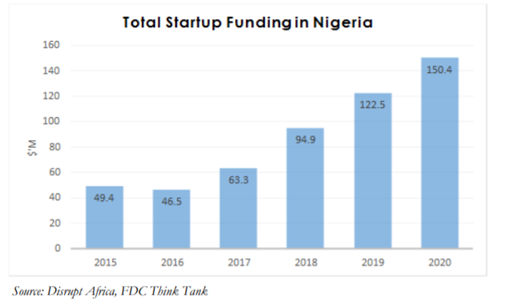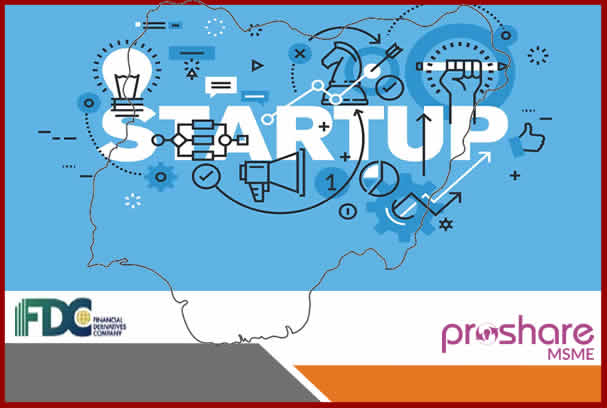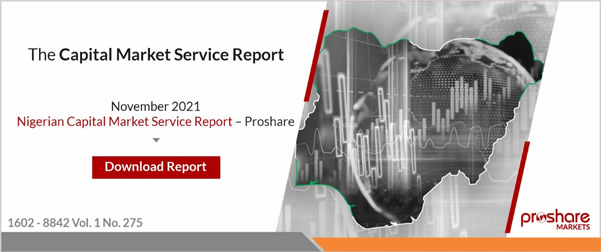SundayDecember 05, 2021 / 07:10 AM / by FDC/ Header ImageCredit: Techuncode
In the first 10 months of 2021, a plethora of foreignand local investors have invested a combined sum of N412 billion (bn) ($992million) across 35 Nigerian startups. Similarly, Google has pledged to invest$1bn in Africa over the next five years aimed at promoting digitaltransformation and innovation across the continent.1 On the regulatory side,the Nigerian government has developed the Nigerian Startup Bill, which is onits way to the Senate for approval. If passed, this bill will empower theNigerian tech ecosystem by fostering cooperation between stakeholders in thestartup space and Nigerian regulators to ensure that subsequent laws andregulations are in line with the best interests of the sector. Theaforementioned factors all allude to the fact that Nigeria, in recent years,has witnessed the advent of a new type of company, one more forward looking andtechnologically savvy than those of the past. These companies typicallyleverage technology to disrupt already established industries and offer a newstandard of value to consumers. Are we in the golden age of the Nigerianstart-up?
What really is astartup?
The term 'startup' may seem self-explanatory, andtraditionally refers to a company still in its early stages of operations.However, this word has evolved to encompass much more. Usually, it is used asnomenclature to refer to young companies rooted in innovation and offeringsolutions to the flaws of existing products. It is also used to develop brandnew classes of goods and services. These companies disrupt and transform thelandscapes of whole industries. Companies like Uber, Airbnb and Robinhood areperfect examples.
Africa and Nigeria, thenext frontier?
The global boom in startup popularity is not exclusiveto Nigeria or the West, Africa currently has about 577 registered startupcompanies. Nigeria accounts for the second highest number of these at 144, justbehind South Africa which has 154 startups. By far the most popular startupclass in Africa are the tech startups, consisting of fintech, e-commerce,e-health, ed-tech and agri-tech among others. In 2020, African tech startupsraised a combined sum of $701.41mn; $625.66mn (89.2%) of that went to the 'bigfour' African technology investment destinations - Nigeria, South Africa, Kenyaand Egypt.
Nigeria's eminence as a forerunner in the Africanstartup space, has been on a steady incline over the past few years. In 2020, atotal of $150.36mn, 21.4% of Africa's total, was raised across 85 Nigerianstartups. This put Nigeria in second place in terms of secured investments for2020, just behind Kenya which raised about $191mn. The number of Nigerianstartups that secured investments in 2020 represented a 77% increase from thenumber recorded in 2019, which was 48. Nigerian startup funding has risen everyyear since 2016, with 2020 representing a 22.8% increase from funding securedin 2019. This trend is projected to continue as estimated funding secured inthe third quarter of 2021 alone ($248mn) surpassed the totality of fundingsecured in 2020 by 64.89%.

The standouts of Nigeria
In2020, certain Nigerian startups distinguished themselves from the pack byraising prodigious amounts compared to the rest of the startup industry. Forexample, Flutterwave, a fintech company, raised $35mn in its series B fundinground. Flutterwave would later go on to raise $170mn in its series C round in2021, which would elevate the company to Unicorn status. Fintech company Bitfxtand e-health firm 54gene secured $15mn each in 2020. Rounding out the list ofthe biggest funding rounds for 2020 were fintech company Kuda, e-health companyHelium Health, and finally fintech Aella Credit, which each raised $10mn.4 Fourout of the six above listed firms are fintechs, this portends to the fact thatfintech is undoubtedly the most preferred class to bet on for investors.
About$89.34mn, accounting for 59.4% of Nigeria's total startup investment in 2020,was raised across 37 fintech startups. Just behind fintech are the e-healthstartups, which raised $31.07mn (20.7% of total funding) across nine startups.E-commerce secured $10.71mn (7.1% of total funding) across eight startups, andenergy secured $7.2mn (4.8% of total funding) across four startups.5 A seminalevent that took place in 2020, within the Nigerian tech startup space, was the$200mn acquisition of the Nigerian fintech company, Paystack, by theIrishAmerican financial services giant, Stripe. This represents a mountinggrowth in international interest and confidence in the Nigerian and Africanfinancial technology ecosystem. The availability of startup funding in Nigeriahas become especially robust in recent years, attributed to a vibrant localinvestor scene and increasing attention from angel investors and venture fundssuch as Y Combinator, Microtraction, and the Future Africa Fund.
The future for Nigeria and Startups
IfNigeria is able to fully leverage the tailwinds brought on by the success andhuge popularity of the startup and fintech sectors, the country will be poisedto experience a phenomenal amount of growth and development in a short periodof time. These companies, apart from obviously creating employmentopportunities, bring huge swaths of foreign capital and investments into thecountry. A number of them also help to solve burning societal and economicissues that impede the living standards of many Nigerians. The copious amountof startup firms with decent value propositions, and the availability of alarge market with active demand for their service offerings, coupled with thelarge influx of foreign capital, all illustrate the fact that we are at thegenesis of the golden age of startups in Nigeria
Related News
1. Meta LaunchesBusiness Coach Tool on WhatsApp to Help SMBs in Africa Grow Online
2. How to Manage aStart-up: 5 Tips
3. The Importanceof Business Education to the Growth of Start-ups
4. Addressing theFinancing Gap Facing MSMEs in Nigeria
5. Fidelity Bank todevelop SMEs Capacity in Non-oil Exports Sector
6. Ecobank SuperReward Scheme Is to Deepen Savings, Celebrate and Assist Customers' Businesses
7. SME Owners: Howto Manage your Staff Salaries Better
8. University ofOxford and FMDQ Group Launch Pioneer Global Partnership
9. 5 Amazing TipsEvery Small Business Owner Must Follow
10. Nigeria: AfDBBolsters Women-empowered Businesses with $50m Loan to FCMB
 Lagos, NG • GMT +1
Lagos, NG • GMT +1











 3481 views
3481 views









 Sponsored Ad
Sponsored Ad
 Advertise with Us
Advertise with Us









